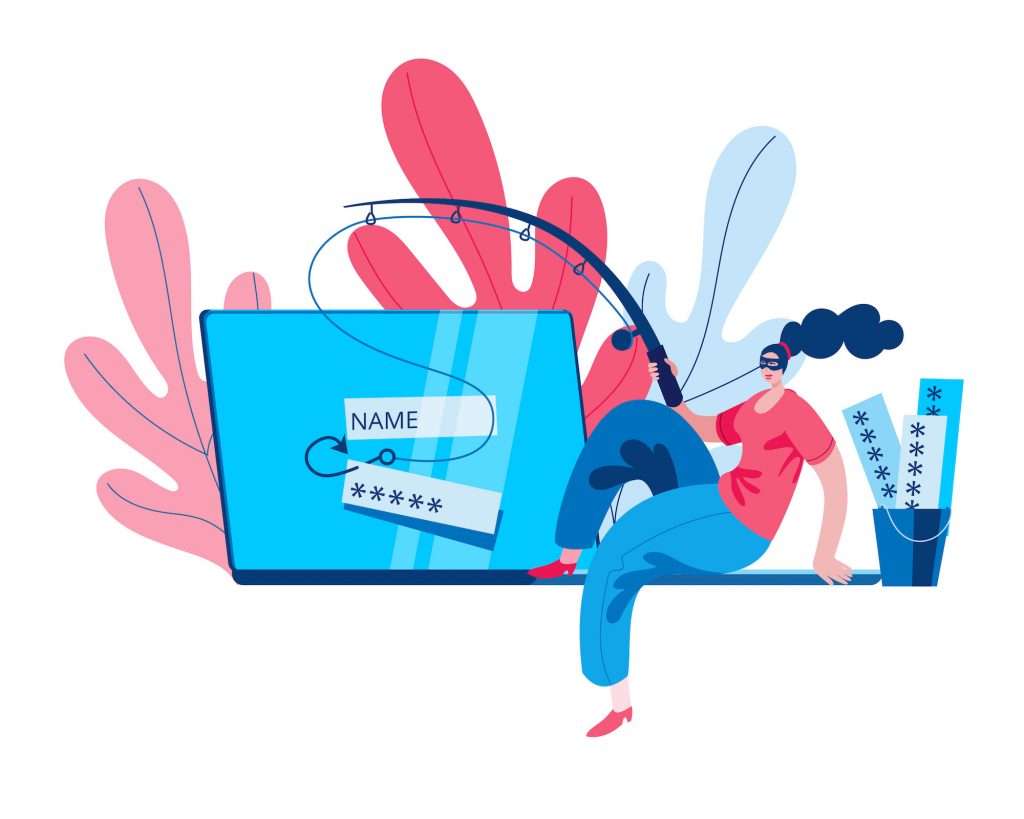If you work in the finance or health care sector, you’ll be all too familiar with large amounts of sensitive data and the importance of protecting it from cybercriminals. But as you might mistakenly believe, cybercriminals don’t only target these major hubs of critical data. Smaller businesses with data that isn’t as sensitive are highly lucrative for data thieves too. So, why would someone want to get to your data? Because all data, whether that’s your email address or your client’s payment details, is incredibly valuable. Due to its value, it is vulnerable too and data thieves will try everything to get this precious asset in order to sell it, hold it for ransom or file fraudulent tax returns to make a small fortune.
As cyber threats have skyrocketed due to the pandemic (over 600%!), it’s more important than ever to protect your data from cybercriminals. However, due to several cybersecurity myths and misconceptions, businesses are made to believe that they don’t need advanced security measures and therefore don’t take the necessary steps to fully protect their data.
We’ve debunked 7 common security myths to make you aware of their risks and help you start safeguarding your business better.
Myth #1: We’ve never been affected by a cyber-attack, so we don’t have to worry about being targeted in the future either
It’s very fortunate if a cybercriminal has never attacked your business, and that you’ve never had to deal with a data breach. But just because you haven’t been a victim yet, doesn’t mean you’re immune to cyber–attacks. The cyber threat landscape is getting more and more sophisticated, and hackers always find new and better ways to steal your data. So, make sure to keep your cybersecurity solutions up to date to help you stay proactive and keep your clean slate.
Myth #2: My data is protected by security software
Security software like anti-virus or malware software is an important component of your cybersecurity strategy. However, that alone won’t protect your data from being stolen or compromised. A good strategy should follow a layered defence approach and include at the very least, cybersecurity training for employees, insider threat detection, and backup and disaster recovery planning.
Myth #3: SMEs aren’t targeted by cybercriminals
As mentioned above, it’s a common misconception that small and medium-sized businesses don’t get targeted by data thieves. As every data is valuable and can be sold for good money, smaller businesses can be quite lucrative too. But it’s not just about the profitability, in fact, smaller businesses actually tend to be targeted more, as their networks and systems are easier to crack than the ones of big enterprises. SMEs usually don’t have comprehensive and robust cybersecurity measures in place due to lacking funds or a professional IT team, which makes them easy prey for cybercriminals.
Myth #4: We use strong passwords, we’ll be fine
Using complex passwords is a good practise and an important step to keeping your accounts and data safe. However, strong passwords alone are not enough to ensure your data is in safe hands. A good cybersecurity strategy encompasses multi-factor authentication, data monitoring, and managing employee access.
Myth #5: We’ll know straight away if our business data has been compromised
Malware these days is much more difficult to detect than it was a few years ago. In the past, your computer would slow down dramatically, or you’d get a pop-up shouting ‘VIRUS’ on your screen if your computer got infected. Today, with advanced malware, if a virus infects your PC or network, you might not even notice it and damage and/or data loss will already have occurred by the time you detect it.
Myth #6: My IT department is solely responsible for cybersecurity
Although your IT team is responsible for implementing a robust IT strategy, every single employee needs to be aware of the cyber risks that could harm your business. According to the global cyber education company Cybnit, 95% of cybersecurity breaches are caused by human error. Many phishing emails or malicious links pose a great threat, and if your staff don’t know how to look out for them, they could put your business at risk.
Myth #7: Once my systems are cyber secure, I don’t have to worry about cyber-attacks anymore
Cybersecurity isn’t a box on your list that can be checked and forgotten about – cybersecurity is an ongoing process. As the cyber landscape is ever-evolving and attacks are becoming smarter and more refined, you need to make sure to continuously monitor your systems, keep your software up to date, review your cybersecurity practices and conduct regular audits.
Now that you’re aware of the 7 most common cybersecurity myths, be sure to close any outstanding security gaps so cyber criminals won’t stand a chance when it comes to targeting your business. If you need some advice, the team at Fusion are here to help you implement hacker-proof cybersecurity measures and create a bespoke business continuity and disaster recovery plan in case things go wrong.
Download our eBook below to find out more.
Featured post
Stay cyber-aware this festive season: how to protect your business and personal data
The festive season is a time for celebration, connection and well-earned downtime, but unfortunately, it’s also one of the busiest times of year for cybercriminals. As people rush to finish online shopping, manage end-of-year admin and take annual leave, cybercriminals see an opportunity to exploit distraction and reduced staffing levels...
Recent posts
Latest posts
Fusion Wins ‘Partner of the Year’ Award from IT Nation
We are delighted to announce that Fusion has been awarded the Partner of the Year Award by IT Nation! This highly coveted award recognises members of the IT Nation Evolve Peer Groups who have demonstrated exceptional growth, innovation, and commitment to excellence through leadership. Winners of this award are determined...
Windows 10 End of Life: Advice for businesses looking to upgrade
The end of support for Windows 10 is fast approaching, is your business ready? Windows 10 will reach its End of Life (EOL) on the 14th of October 2025. This means, that from this date onwards, Microsoft will no longer provide security updates, patches or technical support for devices that...
Fusion newsletter – October 2024
We've got lots of exciting updates that will boost your productivity and reduce your IT troubles. Read on for more information about our brand new mobile contracts with EE. Achieve more in less time with new tutorials on Microsoft CoPilot from Fusion Learn and meet the newest members of our...






